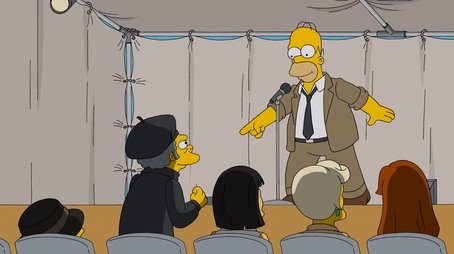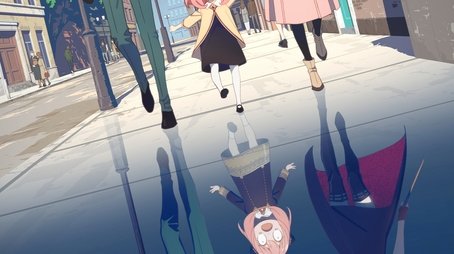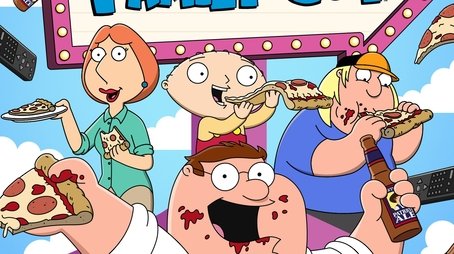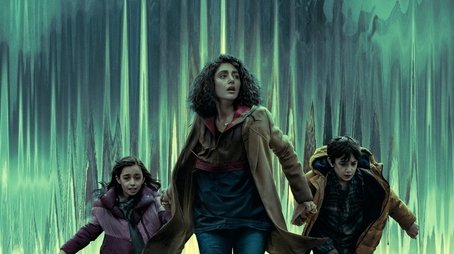
Ask Your Own Question
What is the plot?
The episode "Simprovised" begins with Homer Simpson attending a local improv comedy show with Marge. The atmosphere is lively, filled with laughter and audience participation. Homer is initially skeptical about improv but soon finds himself enjoying the spontaneity of the performances. The host encourages audience members to join in, and Homer, feeling inspired, volunteers to go on stage.
Once on stage, Homer struggles to keep up with the fast-paced nature of improv. He feels the pressure to be funny and engaging, but his attempts fall flat, leading to awkward moments. Despite this, he experiences a rush of excitement and adrenaline, which ignites a newfound passion for improv comedy. After the show, he expresses his desire to pursue improv more seriously, much to Marge's concern about his commitment to family responsibilities.
Homer begins attending improv classes, where he meets a diverse group of aspiring comedians. He quickly becomes enamored with the art form, dedicating more time to it and less to his family. His enthusiasm leads him to neglect his duties at home, causing tension between him and Marge. She feels increasingly frustrated as Homer prioritizes his improv pursuits over family time, leading to arguments about his commitment.
As Homer becomes more involved in the improv scene, he starts to gain recognition and even lands a spot in a local improv troupe. His newfound fame begins to affect his relationships, particularly with Marge and the kids. They feel sidelined and unimportant as Homer immerses himself in the world of comedy. Marge confronts him about his behavior, expressing her feelings of neglect and urging him to find a balance between his passion and family life.
In a pivotal moment, Homer is invited to perform at a prestigious improv festival. This opportunity excites him, but it also serves as a turning point in his relationship with Marge. She feels that he is prioritizing his comedy career over their family, leading to a significant argument. Homer, torn between his love for improv and his family, begins to question whether he is making the right choices.
On the day of the improv festival, Homer prepares nervously, reflecting on the impact his choices have had on his family. He realizes that while he loves performing, he has lost sight of what truly matters. In a moment of clarity, he decides to prioritize his family over the performance. He rushes home to make amends with Marge and the kids, apologizing for his neglect and expressing his commitment to being a better husband and father.
The episode concludes with Homer finding a way to incorporate his love for improv into family life. He invites Marge and the kids to join him in a family improv session, where they can all participate and have fun together. This brings them closer, allowing Homer to balance his passion for comedy with his responsibilities as a husband and father, ultimately leading to a more harmonious family dynamic.
What is the ending?
In the ending of "Simprovised," Lisa's improvisational theater group faces a crisis when their performance is threatened. Lisa, feeling the pressure, steps up to lead the group and ultimately delivers a heartfelt performance that impresses the audience. Meanwhile, Homer and Marge navigate their own challenges, with Homer learning to support Lisa in her creative endeavors. The episode concludes with a sense of unity and accomplishment among the characters, highlighting the importance of family and creativity.
As the episode nears its conclusion, the scene shifts to the improvised theater stage where Lisa and her friends are preparing for their big performance. The atmosphere is charged with excitement and anxiety. Lisa, who has been struggling with self-doubt throughout the episode, takes a deep breath, her heart racing as she stands in front of her peers. She knows that the success of the show rests on her shoulders, and the weight of expectation is palpable.
The lights dim, and the audience buzzes with anticipation. Lisa's friends, including her fellow improvisers, look to her for guidance. They are all aware of the stakes; this performance could either make or break their group. Lisa's internal conflict is evident as she grapples with her fear of failure. However, she draws strength from her family, particularly from Homer, who has been cheering her on from the sidelines.
As the performance begins, Lisa takes the lead, channeling her nervous energy into creativity. The scenes unfold with a mix of humor and heartfelt moments, showcasing the talents of her fellow improvisers. The audience is captivated, laughter and applause filling the theater. Lisa's confidence grows as she realizes that she is not alone; her friends are there to support her, and together they create something special.
Meanwhile, Homer and Marge are in the audience, their expressions a mix of pride and concern. Homer, who has been portrayed as somewhat oblivious throughout the episode, finally understands the importance of Lisa's passion. He cheers loudly, encouraging her from the crowd, which boosts her confidence even further. Marge, watching her daughter shine, feels a swell of emotion, proud of Lisa's bravery and creativity.
As the final scene of the performance approaches, Lisa delivers a poignant monologue that resonates with the audience. It reflects her journey of self-discovery and the importance of embracing one's creativity. The audience is moved, and the applause is thunderous as the performance concludes. Lisa beams with joy, her earlier fears dissipating as she realizes that she has succeeded not just in performing, but in connecting with others through her art.
In the aftermath, the characters gather backstage, exhilarated by their success. Lisa's friends express their gratitude for her leadership, and they all share a moment of camaraderie. Homer, now fully aware of the significance of the event, embraces Lisa, telling her how proud he is of her. Marge joins in, and the family shares a heartfelt hug, symbolizing their support for one another.
The episode wraps up with a final scene showing the family at home, reflecting on the night's events. Lisa feels a renewed sense of purpose, inspired to continue pursuing her passion for improvisation. Homer, having learned the value of encouragement, vows to always support his children in their creative endeavors. The screen fades to black, leaving the audience with a sense of warmth and the message that family support is crucial in the pursuit of one's dreams.
Is there a post-credit scene?
In the episode "Simprovised" from Season 27 of The Simpsons, there is indeed a post-credit scene. After the main credits roll, the scene features Homer and Marge sitting on their couch, watching television. They are engaged in a light-hearted conversation about the events that transpired in the episode. Homer, in his typical humorous fashion, makes a joke about the absurdity of the situations they encountered during the improvised performances. Marge, while chuckling, playfully rolls her eyes at Homer's antics, showcasing their loving yet comical dynamic. The scene encapsulates the essence of their relationship, filled with warmth and humor, leaving viewers with a light-hearted conclusion to the episode.
What role does Homer play in the improv group?
In 'Simprovised', Homer becomes a member of an improv comedy group after being inspired by a performance he sees. His enthusiasm for improv leads him to embrace the art form, but he struggles with the spontaneity and creativity required.
How does Marge react to Homer's involvement in improv?
Marge initially supports Homer's new hobby, but as his obsession with improv grows, she becomes concerned about the time he spends away from the family and the impact it has on their home life.
What challenges does Homer face while performing improv?
Homer faces several challenges during his improv performances, including his tendency to overthink his responses and his struggle to connect with the audience. His comedic timing is often off, leading to awkward moments on stage.
Who are the other members of the improv group and how do they interact with Homer?
The improv group includes familiar characters like Moe, who is skeptical of Homer's abilities, and other Springfield residents who bring their own quirks to the performances. Their interactions range from supportive to critical, highlighting the dynamics of friendship and competition.
What is the significance of the improv competition in the episode?
The improv competition serves as a climax for the episode, where Homer must confront his fears and insecurities. It becomes a test of his commitment to improv and his relationships, ultimately leading to a moment of self-discovery and growth.
Is this family friendly?
In "Simprovised," there are a few elements that may be considered objectionable or upsetting for children or sensitive viewers:
-
Mild Language: The episode contains some instances of mild language that may not be suitable for younger audiences.
-
Adult Themes: There are references to adult situations and themes that may not be fully understood by children, which could lead to confusion or discomfort.
-
Emotional Conflict: The characters experience moments of emotional distress and conflict, particularly related to their aspirations and relationships, which may be intense for younger viewers.
-
Satirical Humor: The episode employs satirical humor that critiques various aspects of society, which may not resonate with all audiences and could be misinterpreted by children.
-
Physical Comedy: There are scenes involving slapstick humor that may be perceived as violent or inappropriate, depending on the viewer's sensitivity to such content.
Overall, while "Simprovised" maintains the show's characteristic humor, these elements may warrant parental discretion for younger viewers.











